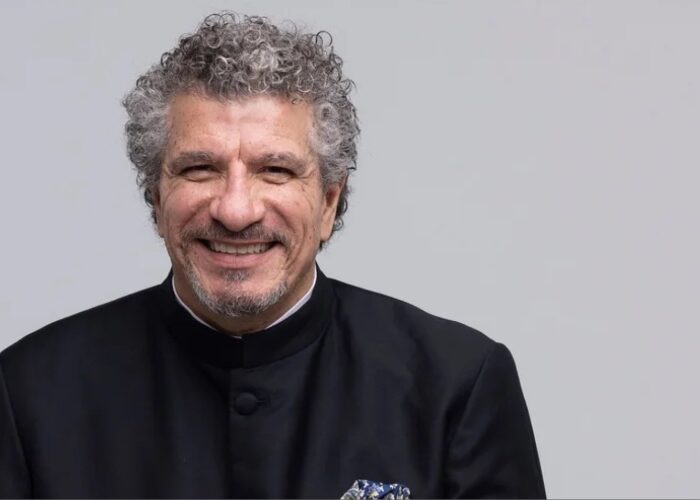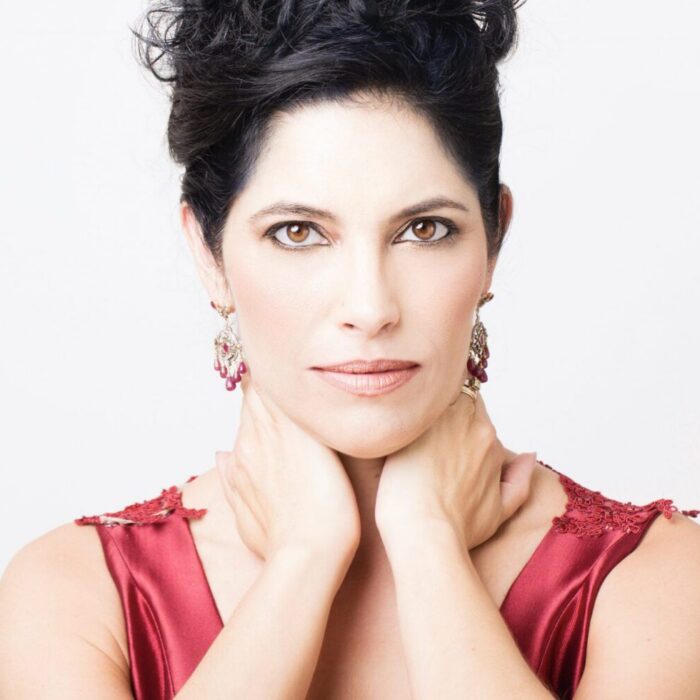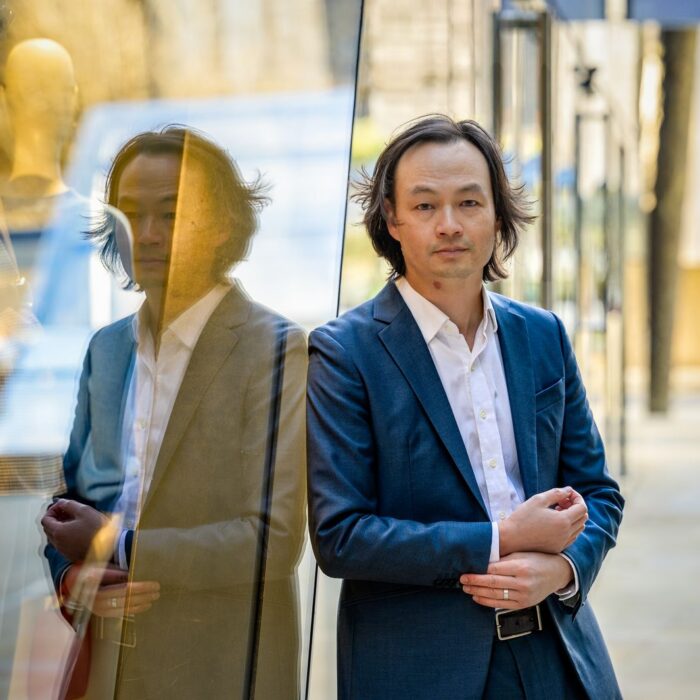
A Student Of Life & Opera – Soprano Anita Hartig On Navigating The Challenges of The Modern World As An Opera Star
By David Salazar(Credit: Dario Acosta)
The Metropolitan Opera House, the Royal Opera House Muscat, the Gran Teatre del Liceu, the Vienna State Opera, the Opernhaus Zürich, the Opéra National de Paris, the San Francisco Opera, and the Teatro Real de Madrid.
These are just a few of the many theaters where 36-year-old Romanian soprano Anita Hartig has performed over the last three seasons. It is a resume that many singers would want at the close of their respective careers, much less in their mid-30s.
But Hartig is taking none of it for granted and knows that she still has a long way to go as an artist.
“My singing needs a lot of improving in lots of aspects, but I feel that I am doing this for a reason. So I keep on going,” she told OperaWire in a recent interview after the soprano performed in the opening of the Royal Opera House Muscat in Oman.
La Divina Lights The Way
Unlike many origin stories, Hartig’s opera career did not initiate with a deep passion for the art form from a young age. In fact, she had no idea what opera was until she was a teenager. Growing up in Bistrita, Romania, her mother worked in a local cafeteria and her father hunted. There were always a lot of animals around in the environment where Hartig grew up.
“It was very free and full of nature,” she noted. Hartig had always felt she was going to be a performer. From a young age, she was a member of the church choir and even enrolled in a Music High School in her local Bistrita. She loved to sing pop tunes and acting and even had a knack for orating and preaching. She felt comfortable in public and even considered a career as a police officer.
But then one fateful day, at the age of 17, she received a CD from a close friend. She put it into the CD player and pressed play. Moments later, she was listening to Maria Callas take on arias from “La Traviata,” “La Wally,” and “Madama Butterfly.”
“It was so full, expressive, round. It was overwhelming. It lifted me up,” Hartig narrated. “I didn’t understand the words, but I heard the emotion. When I felt the emotion and desperation and pain and love in her voice, I knew that was what I had to do.”
But she didn’t find immediate support. Her parents were troubled by the prospects of their child engaging in a career with financial instability.
But Hartig would not be deterred and when she told her mother that there was no turning back, she found a faithful ally.
“My father remained skeptical,” Hartig revealed. “And then teachers came along the way that questioned it.”
Her determination led her to the “Gheorghe Dima” Music Academy in Cluj Napoca and would win several international and national vocal competitions, climaxing in her debut as Mimì in “La Bohème,” a role that would become a signature throughout her career. Other major roles for the soprano have been Musetta, Liù, Violetta, and Micaëla in “Carmen.”
Complex Characters
Hartig, who has noted that she thinks very deeply and philosophically about her characters, noted that she has developed very strong feelings for the women that she interprets.
She finds that Mimì and Musetta “are the same woman in different moments. Everyone is not one-dimensional. Everyone is sweet but can be complex.
She also finds that Susanna and the Countess (a role she will debut at the Metropolitan Opera this fall) are very much created in a similar mold.
“In the past the Countess was Rosina, who is very much like Susanna in ‘Nozze.’ They are both intelligent and one step ahead of the men,” she noted. “And that is something I want to add to my interpretation at the Met.”
She also feels that Micaëla in “Carmen” is often misjudged.
“Micaela is not stupid,” Hartig proclaimed. “Anyone from the north of Spain has a lot of character.She traveled alone from the north to the south of Spain to find the man she loves. At, 17-years-old. People won’t do that these days. So imagine in her time period.”
And while she won’t proclaim a favored role, she did note a preference for “Faust’s” Marguerite because of the expansive journey she goes on.
“It’s a complex and rich journey. She changes a lot throughout the opera. She starts as a young girl who finds and experiences love for the first time and then gets pregnant, kills her baby out of the pain of being abandoned, then eventually gets excommunicated, loses her brother, goes mad, finds love again and then finds redemption. I find the trip is intense and I love exploring it.”
Hartig’s appreciation for the roles she portrays comes from her careful and investigative process. The soprano noted that when she is set to take on an opera for the first time, she makes sure to investigate the text and literary background. She reads about the political and economic background of the time.
“I love those details. Economically, politically. What women’s rights were in that period,” she emphasized before noting that the big challenge in this process is that it changes constantly depending on the director and his or her take on an opera.
“Today it is a bit difficult because of how regisseurs change the time periods of the stories,” she stated. “But I am always interested in the body language of each period. The body language of a woman in the 1870s is different from the body language of a woman from the 1920’s or today. So, if I were to do a production set today, imagine the difference between being in jeans or in a corsette in the 1800s.”
And while many artists might find returning to certain characters less artistically enlightening, Hartig finds it more creatively enriching.
“For example, with Micaëla, I am trying to get closer to the text and think about the story before she comes on stage. I am giving names and a CV to the mother. Or I am thinking about her daily work at the pueblo where she comes from. I am trying to define her personality more clearly. And of course, the voice gives you different colors depending on the day. You blend them to create the most realistic character possible.”
As she looks forward, her hopes are to take on such characters as Desdemona, Tatiana (“if I learn Russian”), Elsa in “Lohengrin,” and, especially Elisabetta in “Don Carlo.”
“’Don Carlo’ is the absolute opera. There is nothing more,” she stated. “I want to sing Elisabetta, but with my lyric voice. All of these women are lyric characters with some moments of dramatic power. So you don’t want to just blast sound all the time. You want the audience to bend towards you. I am trying to grow my mind to think that always. You don’t want to tire the audience but have them sit forward and pay greater attention.”
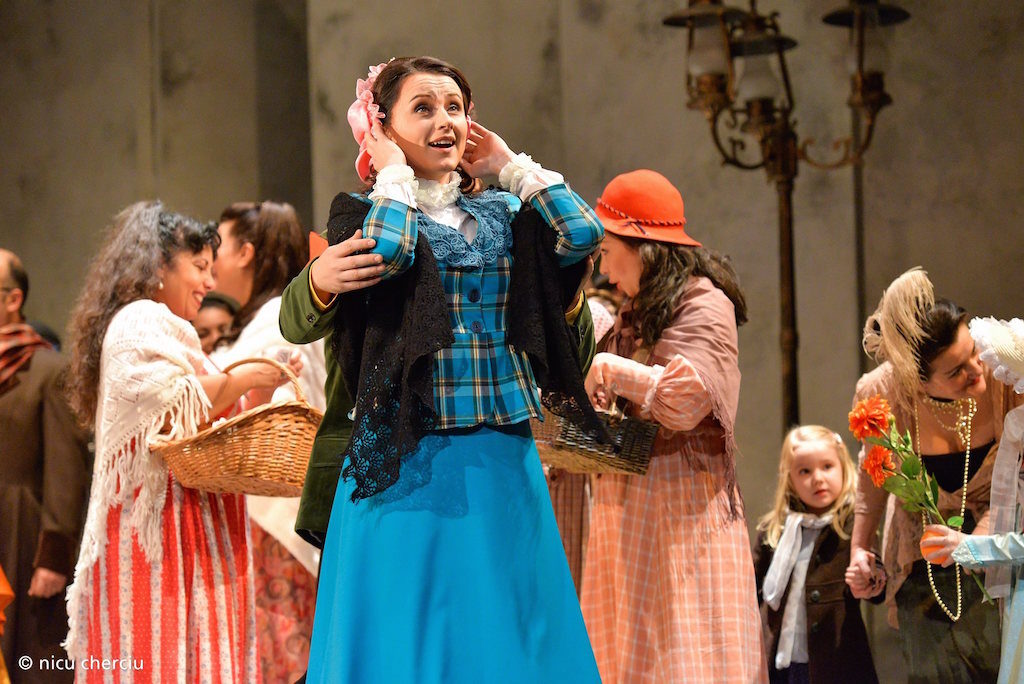
(Credit: Nicu Cherciu)
Finding Balance
And despite all of these big dreams, a packed schedule, and increased success, Hartig is always one to take a step back.
She finds time to check in with her mentors, especially legendary soprano Ileana Cortrubas, who Hartig credits with having the biggest impact on her career.
“She taught me to always sing above the body, which takes tension away from the body,” Hartig noted regarding Cortrubas’ best technical advice. She also emphasized that Cortrubas’ best advice was all about helping the analytical Hartig move on from mistakes in the moment.
“You have to let the things go. It is no longer yours once out of you it belongs to the audience. You are not perfect as a singer. You have things to offer. So if I do all the things I could offer today, I don’t need to worry or put myself down about things I can’t change anymore. Next time I just go and be better the next day.”
Hartig narrated a recent performance of “Traviata” in which she swallowed a piece of hair from the wig.
“I tried to sing over the hair,” she explained. “But then I just couldn’t and I had to find a way to get it out. Since it was the death scene in ‘Traviata,’ I used it and added a cough. The music got off, but I find a way to just keep going and use this challenge to my advantage without thinking about it too much. Mistakes will happen. But you have to know how to manage them.”
To that end, she is also very aware of her critics and often reads reviews, which she often finds “exaggerated both ways.”
“No one can be splendid for three hours and nobody can be [terrible] for three hours,” she explained. “So you do a review for the entire acts and specify the moments you enjoyed or what could be improved from your opinion. But then writing something bad without specifics is mean because every singer, even on an off-day, can deliver at least a note or phrase that touched somebody.”
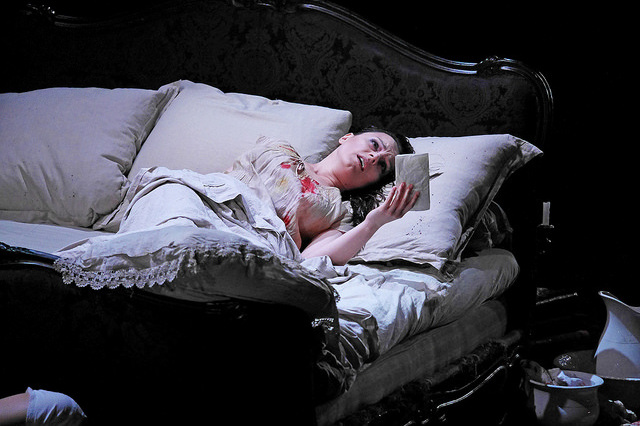
(Credit: A. Bofill)
A Challenging World
The soprano noted that she is still adjusting to the rapid pace of the opera world and its expectations, many of which she finds “disturbing.”
“I find myself in this virtual world that I have to fake it somehow to be more visible,” she noted. “I find it a shame because if you are not raw, simple, yourself, many times you won’t be acknowledged because you won’t stand out. Everyone wants to be shocked somehow or seduced by something more. It is very bizarre and disturbing.
She notes that the simplicity of her background is what keeps her grounded. As a result, she is always after genuine connections with people, preferring a small circle rather than a large one full of acquaintances.
“I can’t connect with people who just small talk. I hate small talk. But for me, I don’t understand. If we are going to bond, then it should be deep. I find small talk a bit boring and superficial,” she noted.
She also prefers to try and find experiences outside of the opera house and world. She enjoys a casual walk in the park, a coffee with friends, a visit to the cinemas or grocery stores.
“I enjoy going with my boyfriend to a museum or visiting a new city without having to go sing there.
“I try to not think about singing because it takes up so much of my headspace and being. So for the last few years, it has been there like a relationship and I have ignored the other aspects of my life,” she explained. “I am here as a woman first, as a friend, as a daughter, as a sister, as a lover, and then as an artist. All of these things make me hopefully an artist. So I am trying to balance all of these. I am struggling to do it. So I do admire those that can have careers and families at the same time. Some people I ask how they do with children, when I am overwhelmed with taking care of myself alone?”

